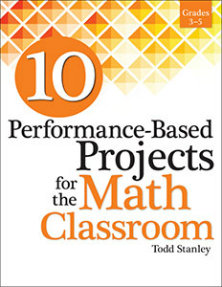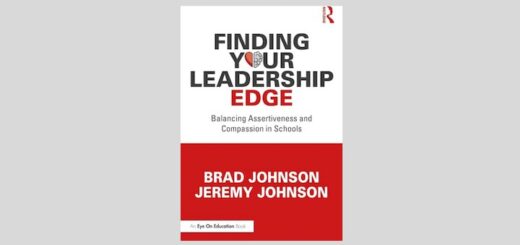Math Projects Need Deeper Math Lessons
10 Performance-Based Projects for the Math Classroom Grades 3-5
By Todd Stanley
(Prufrock Press, 2017 – Learn more)

The title of this book sounded like just what I was looking for. As a math consultant, I am often asked by teachers for rich math projects at the elementary school level. Projects abound for middle school and high school, but it can be more difficult for elementary teachers to find projects that are rich in mathematics.

Arranged around 10 different types of performance-based assessments, the book covers everything from oral presentations to essays and role-playing. The author acknowledges that there are many other types of performance-based assessments, yet he chose to focus on ten from his 2014 book, Performance-Based Assessment for 21st-Century Skills.
There is a project for each type of assessment, and each project is aligned to Common Core State Standards for Mathematics (CCSSM). This feature is helpful for teachers looking for unit assessments aligned to their standards as most states use CCSSM standards.
I liked the fact that each project contained everything the teacher would need, from handouts to rubrics. Yet the lessons that went with the projects were surface level. They did not dive deep into the mathematics to promote conceptual understanding. I think I would have viewed the book in a more positive light had the lessons been removed and only the projects been included.
As I was reading the book, it sometimes seemed like the author was trying to make the mathematics fit the projects and not the projects fit the mathematics. Thus, it often appeared as if the mathematics played a secondary role to the project itself. If a teacher is attempting to assess mathematical understanding, it may be difficult.
The Pros and Cons
The project I liked best was the student log, in which students were to collect data and conduct experiments on paper airplane flight. While the project fit well with CCSSM standard 3.MD.B4 involving measuring with a ruler and plotting the measurements on a line plot, it felt like the author was stretching to include 4.MD.A1, which involves converting units. This is an example of the author trying to make the mathematics fit the project.
The most troubling project was the debate/speech project which involved the 5th grade standard on volume. In the lesson the author refers to a 3x4x2 cube. However, those measurements do not make a cube; they make a rectangular prism. If a teacher were to follow this lesson plan word for word, they would be teaching incorrect vocabulary to their students. Again, this book would be stronger without the lesson plans.
Overall, I would not recommend this book for teachers. While it is obvious that the author is creative and enjoys project-based learning, the mathematics in the book are lacking. I could possibly see this being used for projects in a gifted enrichment setting, without the lessons that accompany the projects. Students would be better served by lessons that promote deep conceptual understanding and by projects designed around the math standards they are meant to assess.
Sara Schafer is a Kansas math consultant at the state level focusing on K-8 math instruction and K-12 math assessment. Previously, she taught middle school math in both public and private school. She also has teaching experience in TESOL and gifted education.



































